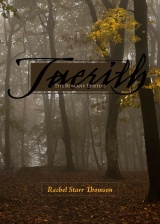Not A Waste Of Time
I wasted my childhood. Also the first half of my teenage years. At least, I thought I did. After all, practically all I did for all those years was read fiction. Devour almost everything of interest (for children and adults) in my father’s four-room collection of books. Scour library shelves and read all kinds of things, some of them excellent, some of them still giving me momentary attacks of depression and fatalism. (Forget monsters. Read S.E. Hinton’s That Was Then, This Is Now if you want scary.)
I had time to do this because I was homeschooled. More specifically, I was unschooled. (More so than many of my siblings. I actually dislike the term “unschooling,” but I don’t have a better one for the moment.) Furthermore, we moved a great deal and so I did not have much of a long-term social life.
Add to that the ability to read very fast, and I suspect I read multiple thousands of books as a kid. The transition to writing my own was actually pretty seamless; in my late teens, I used to joke that I’d written more books than some folks in my life ever finished reading.
One of my favourite nonfiction authors, Tim Ferriss, recently blogged on “The Top 10 Fiction Books for Non-Fiction Addicts.” After describing the years he spent refusing to read fiction, Tim wrote, “My time of reckoning came when I needed to fix insomnia, and non-fiction business books before bed just compounded the problem. I began reading fiction to ‘turn off’ and instead saw breakthroughs in creativity and quality of life as a side-effect. Now, if people ask me, for instance, ‘Which books should I read on leadership?’ I might reply: ‘Dune and Ender’s Game.’ I’ve come to look for practical solutions in both fiction and non-fiction.”
So it turns out I didn’t waste my youth after all. Actually, I’m beginning to suspect I made excellent use of it. Not only did all that reading translate into an education and teach me how to write and edit practically in my sleep, it also affected my understanding of the world, its people, and my place in it in ways I’m only beginning to appreciate. We only get to live one life, but reading has the power to expand that life and bring into it the thoughts, experiences, and imaginations of others in profoundly personal and life-shaping ways.
In the process it can also bring forth qualities in our lives that cross out of the intangible world of reading and start to impact what some people call “real life.” Qualities like wisdom, compassion, leadership, and creativity.
Reading—especially reading fiction—is not a waste of time. At least, it does not have to be. It can be a soul-shaping, mind-expanding way we can choose to use our time.
Writing, it turns out, has some of the same qualities. I wrote my Seventh World Trilogy—Worlds Unseen, Burning Light, and Coming Day—when I was going through some tough stuff spiritually and wanted to capture some of what I felt, and some of what I saw friends going through. Of course, that was just a launching point, and the eventual story went far afield from it.
But as the years have gone by and I’ve occasionally reread or thought about those stories again, I’ve found they have more to say than I thought they did. Themes I didn’t purposely put in there have started to call attention to themselves as the same themes have grown more important in my life. Themes like knowing where we come from, and how much that impacts where we’re going. Themes like being orphaned in a hostile world and needing a Savior who is father and husband as much as king.
Having written through some of those things makes me more able to grasp them, somehow. Fiction, far from being a waste of time, has become an essential part of how I deal with life, discern priorities, find courage to do what is right. It has become an important part of how I seek God.
 My novel Taerith was originally blogged on my website as I wrote it. Some months after I had finished the book, a woman I had never met left a comment telling me that the book had given her hope and encouragement in the face of a broken relationship. And I decided to leave my old guilt complex over spending so much time reading far behind.
My novel Taerith was originally blogged on my website as I wrote it. Some months after I had finished the book, a woman I had never met left a comment telling me that the book had given her hope and encouragement in the face of a broken relationship. And I decided to leave my old guilt complex over spending so much time reading far behind.
Fiction is not a waste of time.
– – – – –
 Rachel Starr Thomson is an author, editor, indie publisher, and writing coach whose writing runs the gamut from walking with God to fantasy fiction to articles on nature and writing. In her other life she’s a poet/storyteller/narrator/singer for Soli Deo Gloria Ballet, a Christian ballet group she co-directs. Browse her books and articles at RachelStarrThomson.com, or check out her Free Stuff page for downloads and lots of online reading.
Rachel Starr Thomson is an author, editor, indie publisher, and writing coach whose writing runs the gamut from walking with God to fantasy fiction to articles on nature and writing. In her other life she’s a poet/storyteller/narrator/singer for Soli Deo Gloria Ballet, a Christian ballet group she co-directs. Browse her books and articles at RachelStarrThomson.com, or check out her Free Stuff page for downloads and lots of online reading.































Last night I was thinking about my life up this point, and going backwards it’s college, high school, everything else. And the “everything else” can best be divided by the books I was reading. It’s odd, looking back at the dreams I was having at any time can pretty well point what I was reading then– Left Behind 2004ish, Redwall 2006, etc.
Well said, Rachel! Few things prepare one for writing like reading large numbers of good books. Like you, I’m a fast reader and have read more novels than I could even begin to count. It’s broadened my imagination, expanded my understanding, and given me fresh perspective on very real issues. Not to mention that God often speaks to me or illuminates certain concepts through story.
I have encountered those who think there’s nothing of value in fiction, but I’ve seen enough meaningful change in my own life to know that’s not the case.
[…] A new post at Speculative Faith, who were kind enough to ask me to guest blog even though I’m not a regular there anymore: http://www.speculativefaith.lorehaven.com/2012/03/23/not-a-waste-of-time […]
That was an excellent post, Rachel.
I just posted an article on my blog about the same thing.
http://kammbia1.wordpress.com/2012/03/24/wisdom-of-marion-2-10-why-i-read-fiction/
Reading Fiction is not a waste of time and gives the reader a better insight into human nature.
Marion
Excellent take on the value and power of fictional narrative! You’re preaching to the choir here as well, but it’s good to be affirmed nonetheless. I spent countless hours in fictional worlds, and writing hundreds of pages of stories. At my worst, Satan really tries to pound into me how “worthless” it all is and how I should be doing more “real stuff” and less “stupid stories.” Then God reminds me that this is His calling on my life, for His glory, and to keep running the writing race for Him!